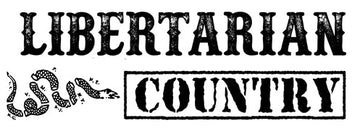The progressive mantra that “the rich get rich by extracting value from their workers” has been repeated so often that it’s practically a moral dogma. It’s painted as a simple story of villains and victims — where capitalists sit atop the hierarchy, siphoning the sweat of the working class for personal gain.
But like most simplistic narratives, it collapses under the weight of serious economic theory. To understand why your boss isn’t stealing from you, we must dig into the flawed assumptions behind the Labor Theory of Value and explore what actually creates wealth in a capitalist system.
The Labor Theory of Value: Marx’s Great Mistake
The Labor Theory of Value (LTV) — advanced by classical economists like David Ricardo and later radicalized by Karl Marx — argues that the value of a good or service is determined by the amount of labor required to produce it. Marx concluded that since labor produces all value, any profit earned by capitalists must be “surplus value” extracted from workers.
This sounds compelling on the surface, but it’s economically false. The LTV ignores a fundamental truth: value is subjective. It isn’t dictated by how many hours someone worked, but by what someone is willing to pay. You could labor for 100 hours crafting a porcelain hammer, but if no one wants to buy it, it has zero value. Conversely, a digital artist might create a design in 10 minutes that sells for thousands. Value doesn’t come from labor itself — it comes from the perceived usefulness or desirability of what labor produces.
This principle, known as marginal utility theory, was developed by economists like Carl Menger, Eugen Böhm-Bawerk, and William Stanley Jevons in the late 19th century. Their insight destroyed the intellectual foundation of Marx’s theory: goods are not valuable because labor went into them — labor goes into them because they are valuable to someone.
Capital Multiplies Labor, It Doesn’t Exploit It
The progressive claim that “capital exploits labor” assumes workers would earn the same (or more) if they simply worked for themselves. But in the real world, capital magnifies productivity. When a worker joins a company, they gain access to capital goods (machinery, software, logistics, brand reputation, distribution networks, etc.) that vastly increase the output of their labor.
An individual carpenter with a hammer might build one table a week. A carpenter in a factory equipped with industrial saws, supply chains, and marketing infrastructure might produce 100 tables a week — and earn far more as a result. The owner’s capital doesn’t steal the worker’s labor; it amplifies it.
As Böhm-Bawerk pointed out, capital formation shortens the production timeline. Without capital investment, a worker’s labor would yield slower and smaller returns. The capitalist bridges that gap, taking on risk, time preference, and uncertainty — all of which justify their profit.
Brand Value: The Invisible Capital Multiplier
There’s another dimension modern progressives ignore: intangible capital. When workers are employed under a recognized brand or company, their labor instantly becomes more valuable because it’s attached to a reputation that consumers trust.
A barista working at Starbucks earns more than a freelancer selling coffee from a cart not because Starbucks “exploits” her, but because the Starbucks name increases the perceived value of her labor. The same cup of coffee commands a higher price because customers are willing to pay more for consistency, ambiance, and brand recognition.
In other words, the capitalist provides a value multiplier that the worker alone could not replicate. A famous trademark, a strong distribution system, or an established customer base are assets built through years of risk, investment, and entrepreneurial insight. They are not the byproducts of individual labor; they are forms of capital value that make the labor worth more.
Voluntary Exchange Is Not Theft
Work under capitalism is voluntary. No worker is enslaved to a company. They can negotiate wages, switch employers, start a competing business, or freelance. The fact that people choose to work for others reveals that the arrangement is mutually beneficial.
A worker values the paycheck and stability more than the alternative of going solo. The employer values the output more than the wage paid. Both parties walk away better off. That’s the essence of voluntary exchange — the opposite of coercion.
To call this “theft” is to strip human agency from workers entirely, as if they’re too ignorant to act in their own interest. That’s not liberation; that’s condescension disguised as compassion.
The Alternatives Are Real
The proof that capitalism isn’t exploitation lies in its alternatives. Anyone is free to start their own business, sell their labor on the open market, collaborate with other like-minded individuals to form a worker's owned cooperative, or live off their own production. Many do exactly that. But most choose to work for established enterprises because they value the security, capital leverage, and growth potential that come from being part of a larger system.
In that sense, a job is a trade — labor in exchange for capital efficiency. You’re not being “exploited” by your boss; you’re leveraging their infrastructure, brand, and risk exposure to earn a predictable income without having to bear those burdens yourself.
Cooperation, Not Extraction
The claim that “the rich extract value from workers” depends on a 19th-century economic fallacy that’s been disproven for over a century. Value isn’t created by labor alone — it emerges from cooperation, capital, and voluntary exchange.
Capitalists don’t steal from workers; they enable workers to be more productive, secure, and connected to markets they couldn’t reach alone. The wealthy are not vampires — they are multipliers. And the moment we start recognizing that capitalism is a system of mutual creation, not class conflict, we can finally bury the myth of “extraction” and celebrate the truth of human collaboration.
Check out our apparel for the thinking class! Defend freedom in style! 👇


